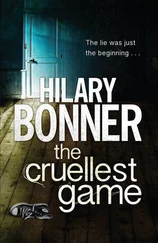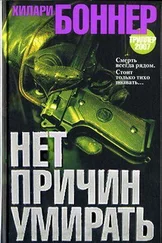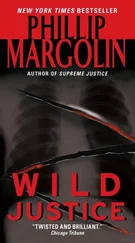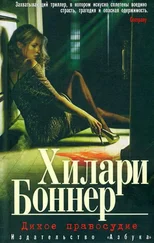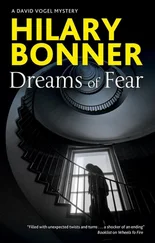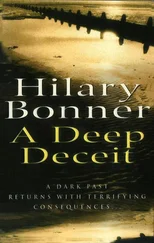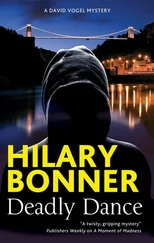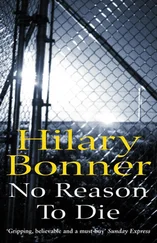She had stopped smoking, of course. Hadn’t everybody? But she still drank just as much, maybe more. The media world might have entered a new puritanical age but she wasn’t giving up the booze even if she did seem to be surrounded by bright young things who thought a bottle of Mexican beer with a bit of lime shoved incongruously into its neck was the height of decadence and sophistication.
She wondered what they would have made of an era when a trolley laden with wine, beer and spirits used to be trundled weekly around the offices of the Comet , and senior executives were invited to choose supplies for their fridges and drinks cabinets. Free of charge, too. Even she, as chief crime correspondent, had had a couch and a fridge in her office. She didn’t qualify for the free booze, but it was common practice for those who did to order a few extra bottles in order to help out those who didn’t. Editorial meetings, particularly on Friday evenings, were inclined to turn into parties. On hot days in the summer the editor and his top men sometimes used to decamp for the afternoon to a swanky Thames-side hotel up near Maidenhead, from which, in the days even before faxes, they would edit the paper long-distance with the aid of a few extra telephone lines and a squad of swarthy despatch riders, laden with page proofs and bundles of subbed copy, running a motorbike shuttle service between the hotel and Fleet Street.
Nowadays, of course, alcohol was banned from the offices of the Comet . Even the editor had a fridge containing only soft drinks with which to entertain visitors.
She smiled nostalgically before reminding herself of the dangers of looking back at the past through rose-coloured spectacles. She made herself remember the appalling antics of Frank Manners and his cohorts. But even most of that merely widened her nostalgic smile. If you told the kids today, of either sex, the way the guys back then had behaved they wouldn’t believe it. After all, if a chap in an office nowadays made the most polite of personally admiring remarks to a woman colleague he was likely to get done for sexual harassment. ‘You’re looking good, Joanna. I bet you had a really great fuck last night,’ as a form of casual greeting would be quite beyond their comprehension.
Strange thing was that while she loathed sexism and certainly sex discrimination as much as the next woman, she did not remember being too discomfited by the things that had happened — until Frank Manners became completely out of control. But at least those guys were human beings, albeit often pathetic ones, and not pre-programmed robots. Joanna was not entirely in favour of political correctness. Apart from anything else, it was so damned dull.
She glanced at her watch. She still had the best part of an hour to kill before Paul would be ready to leave for the dinner party — if he didn’t decide to cancel at the last moment, which was not at all unknown, particularly if there was a big story on the go — and they didn’t get much bigger than the cracking of the DNA code, the day’s huge revelation that would be all over the paper the next morning.
She got up and walked to the coffee machine over by the elevator and helped herself to a decaff. She no longer drank real coffee after lunchtime. She reckoned decaff was probably every bit as harmful, but at least it didn’t keep her awake all night, tossing and turning.
Sipping from her polystyrene cup, she wondered why she bothered with the stuff at all. It tasted pretty much as if all the flavour had been removed along with the caffeine. She tried to clear her mind. Did she really want to get involved with the Beast of Dartmoor case again? Just hearing Fielding’s voice had bothered her much more than she would ever have expected it to. ‘Damn the bloody man,’ she muttered to herself, apparently louder than she had realised. A sea of silent heads turned towards her, then away again. Christ, she could remember a time when you’d hear screaming in the office and wouldn’t bother to look up. Nothing short of an actual physical punch-up caused any kind of stir in those days — and she’d seen a few of those too.
Upon reflection she decided it would be not only unwise but also dangerous to start delving into the case again. It really would be best to leave well alone. Absolutely no doubt about it.
She drained the last of her ghastly decaff, crushed the polystyrene cup in her fist and threw it at the nearest waste-paper bin. She missed and the cup slid untidily across the highly polished floor. A passing twelve-year-old, wearing an overly crisp white shirt, stopped, picked it up and put it neatly in a bin, glancing smilingly towards her as if he expected thanks or something. He didn’t get any. Joanna merely observed him without enthusiasm, her eyes only half focused, her mind twenty years away.
Of course she feared she wasn’t going to leave well alone. There was no real chance of that and had not been since she had taken Fielding’s call. She was going to get embroiled in the case all over again even though she honestly didn’t want to. She knew she was not going to be able to stop herself, so she might just as well get on with it.
Across the newsroom she could see young Tim Jones, upright in his chair, engrossed as usual in his computer screen. Tim, a bright diligent chap for whom Jo had considerable regard, was the Comet ’s chief crime correspondent, the job Joanna had just landed when she first met Fielding. Jo’s title was now Assistant Editor, Crime. It didn’t mean a great deal in that she was not one of the three assistant editors allowed, along with the deputy editor, to run the paper at night and in Paul’s absence, which rankled a bit. Paul had apologised and said he didn’t feel able to give his wife that authority. However, she couldn’t grumble as she was primarily only a part-time columnist now.
She hoisted herself upright and walked over to Tim’s corner of the room. When she told him what she wanted he gave her a cheery smile — he always seemed to be cheery, bless him, but then he was still so young and new — and swiftly fished both a copy of the European Convention on Human Rights and Britain’s Human Rights Act out of his desk drawer. Trust Tim to be up to date.
‘Anything else I can help you with?’ he asked, as she turned away from him. Tim had a boyishly open face, very dark curly hair and even darker eyes, and was definitely far too handsome to be let loose in a newspaper office.
Jo thought of all manner of glib answers, muttered a ‘no thank you’ over her shoulder and made herself refrain from turning into the ageing female equivalent of all those tired old male hacks she’d had to deal with when she had been his age.
Back at her desk, she first opened the small purple Human Rights Convention booklet with its four white European stars on the front and turned to Article Four of the Seventh Protocol.
Paragraph One reaffirmed the right of all never to be tried again for an offence of which they had been acquitted.
Paragraph Two gave a proviso hitherto unknown in British law. There could be a retrial ‘if there is evidence of new or newly discovered facts, or if there has been a fundamental defect in the previous proceedings, which could affect the outcome of the case’.
As it happened Joanna thought there had been a number of fundamental defects in O’Donnell’s prosecution for the murder of Angela Phillips. But that was not what was at issue, nor was it ever likely to be. There was, however, certainly new evidence.
She studied the booklet carefully. Tim Jones had helpfully scribbled HRA alongside the articles which had been adopted into Britain’s Human Rights Act due, as Fielding had reminded her, to become law on 2 October 2000. Article Four of Protocol Seven was not among them. She was not surprised. She might not have been on a Human Rights course, and now that she was no longer actually an on-the-road crime reporter she might not be quite as on the ball in certain areas as she would once have been, but she was sure that had such a major change in the law been imminent she would not have missed it.
Читать дальше

